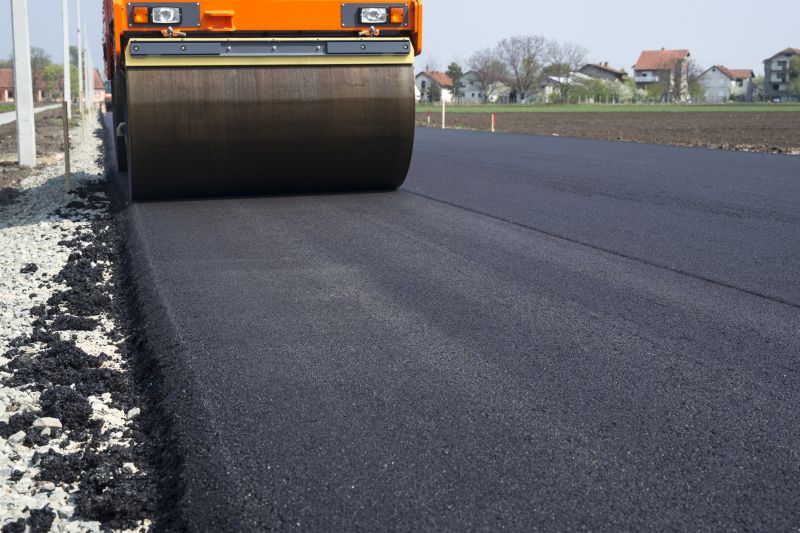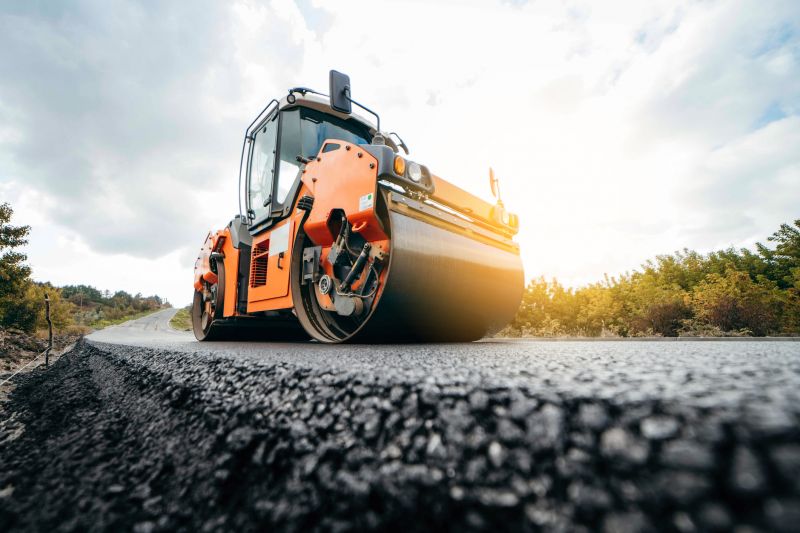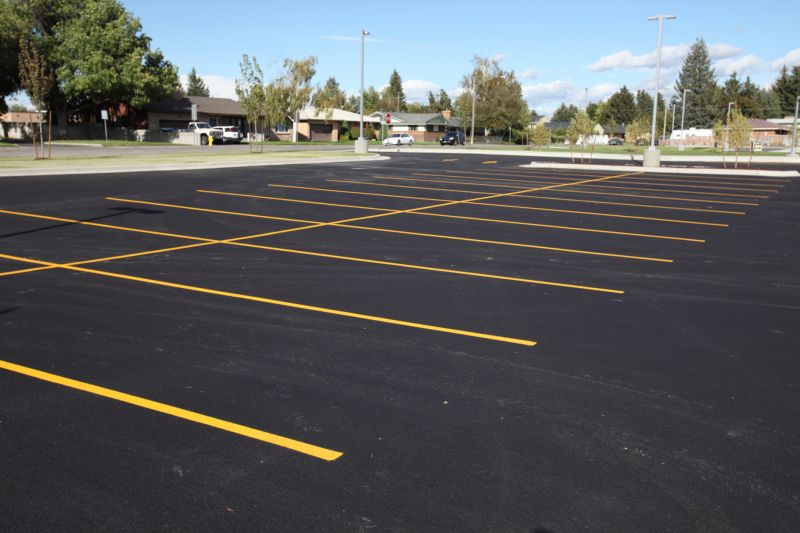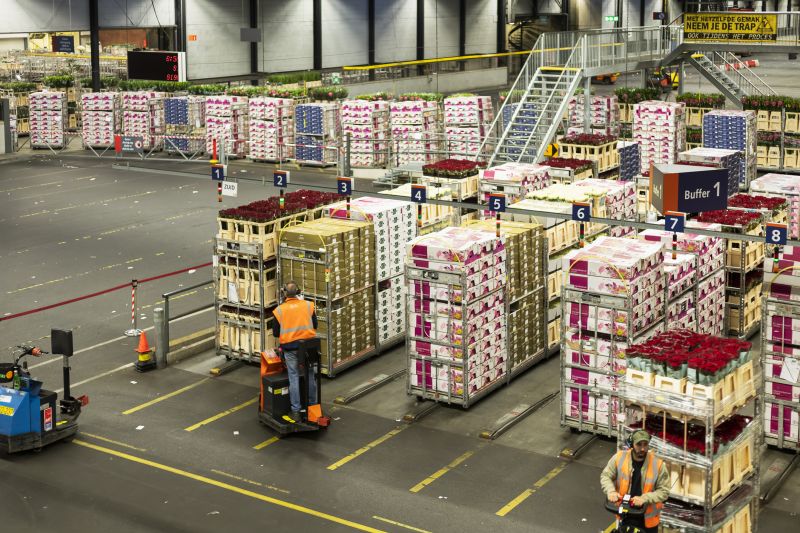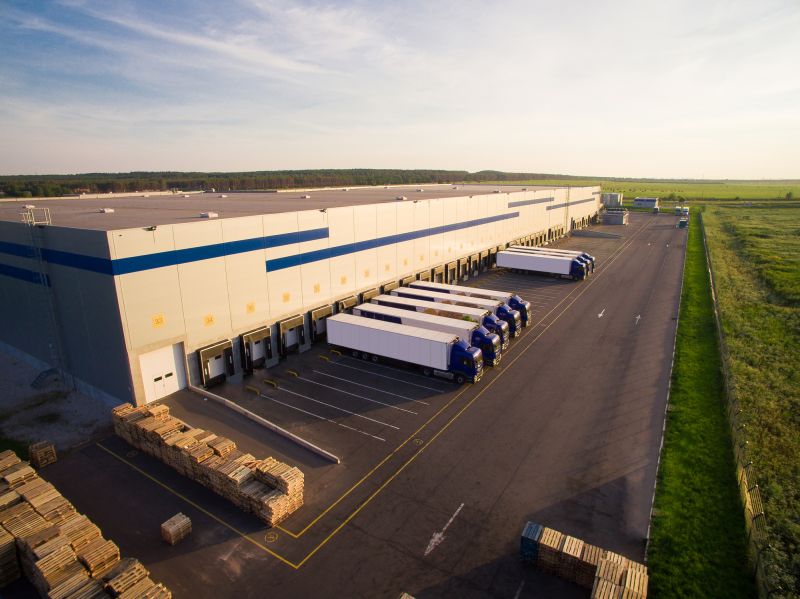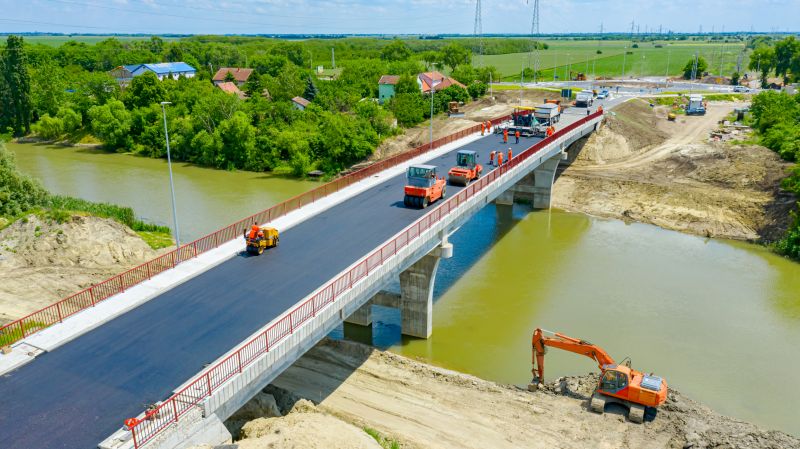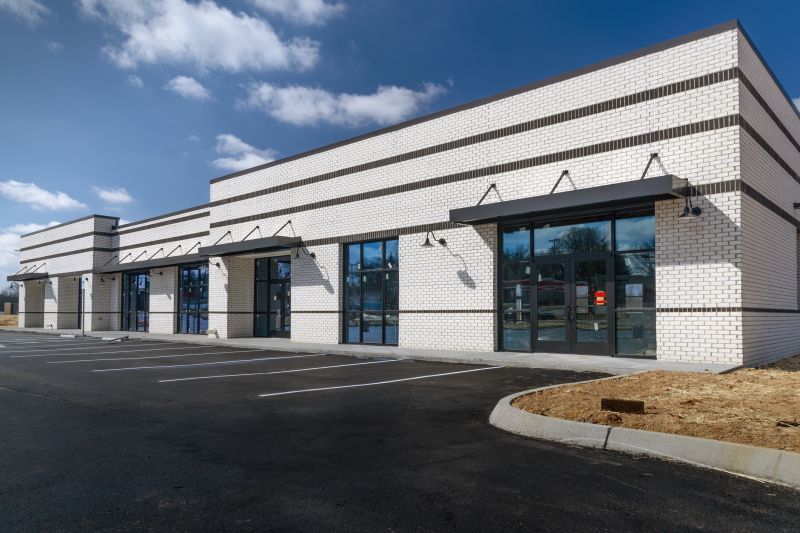Industrial Paving Project Supplies and Materials
Get help with your industrial paving needs. Fill out the form above and we will connect you with local pros in your area. Industrial paving requires a wide range of tools and materials to ensure a successful and durable outcome. Concrete mixers play a crucial role in this process, as they allow for the precise mixing of concrete and other aggregates. To prepare the surface for paving, heavy-duty excavators and backhoes are used to remove any existing materials and create a solid foundation. Once the area is cleared, compactors are utilized to compact the soil and create a stable base. Industrial paving also involves the use of asphalt pavers, which are essential for laying down hot mix asphalt. These pavers are equipped with adjustable screeds to ensure proper thickness and smoothness. Asphalt rollers are then employed to compact the asphalt and achieve optimal density. To mark the pavement and enhance safety, thermoplastic road marking machines are used to apply durable and highly visible road markings. Industrial paving projects often require the use of concrete saws to cut through existing pavement or create expansion joints. Paver lifters are utilized to safely lift and move heavy paving stones or concrete blocks. Additionally, sealants and joint fillers are used to protect the pavement from water infiltration and prevent cracks. Other essential materials for industrial paving include reinforcing steel for added strength, geotextiles to prevent soil erosion, and road base materials to create a stable sub-base. Overall, the tools and materials specific to industrial paving are vital in ensuring the quality, longevity, and functionality of the paved surfaces.
Concrete mixers are essential tools in the field of industrial paving. With their ability to efficiently blend cement, aggregate, and water, these machines ensure the creation of high-quality concrete mixtures that are specifically designed for industrial paving applications. Concrete mixers are utilized to produce large quantities of concrete, which is then used to construct and pave roads, highways, parking lots, and other heavy-duty industrial surfaces. These mixers are equipped with powerful motors and durable mixing drums, allowing for the consistent and thorough blending of materials. By using concrete mixers for industrial paving, construction professionals can achieve strong, durable, and long-lasting surfaces that can withstand heavy traffic and extreme weather conditions.
Concrete is an ideal choice for industrial paving due to its unmatched durability and strength. With its ability to withstand heavy loads and high traffic, concrete is commonly used for industrial areas such as warehouses, factories, and logistics centers. It provides a smooth and sturdy surface that can withstand the constant movement of heavy machinery, forklifts, and vehicles. Concrete also offers excellent resistance to chemicals, oils, and extreme weather conditions, making it a reliable choice for long-lasting industrial paving solutions. Its versatility allows for various finishes and textures, ensuring safety and enhancing the overall aesthetics of the industrial space. Whether it's for outdoor storage yards or internal production areas, concrete provides a cost-effective and low-maintenance paving option that can withstand the demands of the industrial environment.
Excavators play a crucial role in industrial paving projects by providing efficient and precise excavation capabilities. These versatile machines are equipped with powerful hydraulic systems and a variety of attachments, making them ideal for preparing the ground before paving begins. Excavators can be used to remove any existing structures, debris, or obstacles from the construction site, ensuring a clean and level surface for the paving process. Additionally, they are capable of digging trenches, grading the terrain, and creating proper drainage systems, all of which are essential for a successful industrial paving project. With their ability to maneuver in tight spaces and their exceptional lifting capacity, excavators are indispensable tools for achieving smooth and durable industrial pavement surfaces.
Backhoes are versatile heavy machinery that play an essential role in industrial paving. These powerful machines are equipped with a digging bucket at the front and a backhoe at the rear, allowing them to perform a wide range of tasks. In the context of industrial paving, backhoes are primarily used for excavation and earthmoving. When it comes to industrial paving projects, backhoes are instrumental in preparing the construction site. They can efficiently remove existing pavement, clear the area of debris, and excavate the ground to the required depth. Backhoes are also used for grading and leveling the surface, ensuring a smooth and even foundation for the paving materials. Additionally, backhoes are employed in the transportation and placement of materials during the paving process. They can load and unload materials such as asphalt, concrete, gravel, and sand, making it easier to supply the necessary components to the construction site. Backhoes can also help in spreading and compacting the paving materials, ensuring proper compaction and uniformity. Furthermore, backhoes are often utilized for trenching and utility installation during industrial paving projects. They can dig trenches for laying underground pipes, cables, and conduits, providing the necessary infrastructure required for industrial facilities. This versatility makes backhoes an indispensable tool for both excavation and utility work, saving time and effort in the overall paving process. In summary, backhoes are a vital asset in industrial paving, enabling efficient excavation, earthmoving, grading, material transportation, and utility installation. Their versatility and capabilities make them indispensable in creating a solid foundation and ensuring the successful completion of industrial paving projects.
Compactors play a crucial role in industrial paving by efficiently compacting and leveling various types of materials such as asphalt, concrete, and soil. These powerful machines use their heavy drums or plates to apply pressure and vibrations, ensuring proper compaction and achieving a smooth and durable surface. Compactors are commonly used during the construction of roads, highways, parking lots, and other large-scale industrial paving projects. Their ability to increase the density and stability of the pavement enhances its longevity, reduces the risk of cracks and potholes, and improves overall safety. With their versatility and efficiency, compactors are indispensable tools in the field of industrial paving, ensuring the successful completion of projects with high-quality results.
Asphalt pavers play a crucial role in industrial paving, offering a reliable and efficient solution for constructing and maintaining large-scale industrial surfaces. These powerful machines are specially designed to lay asphalt evenly and smoothly, ensuring a durable and long-lasting pavement. With precise control over material distribution and compaction, asphalt pavers can handle the demands of industrial paving projects, including warehouses, manufacturing plants, logistics centers, and more. Their versatility allows them to work on various surfaces, such as concrete, gravel, or existing asphalt, providing a seamless transition and enhancing the overall functionality and aesthetics of industrial spaces. Whether it's constructing new pavements or repairing and resurfacing existing ones, asphalt pavers are essential equipment for achieving high-quality results in industrial paving projects.
Asphalt rollers are essential equipment used in industrial paving projects. These heavy-duty machines are designed to compact asphalt and ensure a smooth and durable surface for roads, parking lots, and other industrial areas. With their large, heavy drums, asphalt rollers exert pressure on the asphalt mixture, helping to remove air voids and achieve proper density. This compaction process enhances the pavement's strength and longevity, making it capable of withstanding heavy traffic and harsh weather conditions. Whether it's a new construction project or the rehabilitation of existing pavement, asphalt rollers play a crucial role in achieving a high-quality, long-lasting industrial paving solution.
Thermoplastic road marking machines are highly efficient and versatile tools that play a crucial role in industrial paving. These machines are specifically designed to apply thermoplastic materials, such as hot melt paints or preformed tapes, onto road surfaces, making them ideal for creating durable and highly visible markings in industrial areas. In industrial paving, thermoplastic road marking machines offer several advantages. Firstly, they provide precise and consistent line marking, ensuring clear demarcation of lanes, parking areas, and safety zones. This helps improve traffic flow, enhance safety, and prevent accidents in industrial settings. Moreover, these machines are capable of applying thermoplastic materials at high temperatures, resulting in quick drying and superior adhesion to various surfaces, including concrete and asphalt. This ensures long-lasting and robust markings that can withstand heavy traffic, harsh weather conditions, and frequent industrial activities. Thermoplastic road marking machines also offer flexibility in terms of line width and design options. They can create different line types, such as solid lines, dashed lines, arrows, and symbols, allowing for customization based on specific industrial requirements. Furthermore, these machines are designed for ease of use and efficiency. They typically feature user-friendly controls, adjustable settings, and ergonomic designs, enabling operators to work comfortably and effectively. This helps maximize productivity and minimize downtime during industrial paving projects. Overall, thermoplastic road marking machines are indispensable tools in industrial paving, providing precise, durable, and highly visible markings that contribute to enhanced safety, improved traffic management, and efficient utilization of industrial spaces.
Concrete saws are indispensable tools in the realm of industrial paving. Designed specifically for cutting through tough concrete surfaces, they enable precise and efficient cutting, shaping, and removal of concrete during the paving process. These powerful machines are capable of cutting through thick concrete slabs, curbs, and other structures with ease, making them ideal for tasks such as creating expansion joints, removing damaged sections, or shaping concrete for proper drainage. With their ability to make clean and accurate cuts, concrete saws ensure that industrial paving projects are executed with precision, durability, and optimal functionality.
Paver Lifters are essential tools for efficient and safe industrial paving operations. Designed specifically for heavy-duty applications, these innovative devices are used to lift and position heavy concrete or asphalt pavers with precision and ease. By securely gripping the paver, they allow for quick and accurate placement, ensuring smooth and level surfaces during the paving process. Paver Lifters not only increase productivity but also reduce the risk of injuries and strains associated with manual lifting. With their robust construction and user-friendly features, these tools are indispensable for achieving high-quality results in industrial paving projects.
Sealants play a crucial role in industrial paving projects by providing a protective layer that enhances the durability and longevity of the pavement. Specifically designed for heavy-duty applications, industrial sealants are applied to the surface of the pavement to prevent water penetration, chemical damage, and the intrusion of dirt and debris. By sealing the pavement, industrial sealants create a barrier that minimizes the impact of harsh weather conditions, such as freeze-thaw cycles and UV radiation, which can cause cracks and deterioration over time. This protective layer also helps to reduce the formation of potholes and prevents the growth of weeds and vegetation, ensuring a smooth and safe surface for heavy machinery, vehicles, and pedestrian traffic. Additionally, industrial sealants enhance the aesthetic appeal of the paved area by providing a clean and uniform appearance. They can be customized to match the color and texture of the pavement, creating a cohesive and professional look. Overall, the use of sealants in industrial paving projects is essential for maximizing the lifespan of the pavement, minimizing maintenance costs, and ensuring a safe and visually appealing environment for industrial operations.
Joint fillers are essential for industrial paving projects, providing a durable and long-lasting solution for filling the gaps or joints between concrete slabs. These specially designed materials are used to prevent debris, water, chemicals, and other substances from infiltrating the joints, which can cause damage and compromise the integrity of the pavement. In industrial paving, where heavy machinery, forklifts, and constant traffic are common, joint fillers play a crucial role in maintaining the stability and functionality of the paved surface. By filling the joints, they help distribute the load evenly across the pavement, reducing stress and preventing the formation of cracks or uneven surfaces. Moreover, joint fillers enhance the overall aesthetics of the pavement by providing a smooth and seamless appearance. They also contribute to the safety of the area by preventing tripping hazards and minimizing the risk of accidents caused by uneven surfaces. When selecting joint fillers for industrial paving, it is important to consider factors such as the type of traffic, expected load, chemical exposure, and temperature variations. Different types of joint fillers, such as polyurethane, silicone, or epoxy-based fillers, offer varying levels of flexibility, durability, and resistance to environmental conditions. Overall, using joint fillers in industrial paving projects ensures longevity, durability, and safety, making them an indispensable component for maintaining high-quality and reliable paved surfaces in industrial settings.
Reinforcing steel, commonly known as rebar, plays a crucial role in industrial paving projects. With its exceptional strength and durability, rebar is used to reinforce concrete surfaces in order to enhance their load-bearing capacity and longevity. In the context of industrial paving, rebar is strategically placed within concrete slabs, roadways, and parking lots to provide structural support and prevent cracking, settling, and other forms of damage caused by heavy traffic, extreme weather conditions, and heavy machinery. By reinforcing the concrete, rebar ensures that the industrial paving remains intact, stable, and capable of withstanding the demands of heavy industrial use.
Geotextiles are versatile materials that can be used in a variety of applications, including industrial paving. When it comes to industrial paving, geotextiles serve as a crucial component in enhancing the durability and longevity of the pavement. Geotextiles are typically placed between the subgrade and the base course of the pavement. They act as a separator, preventing the mixing of different soil layers and providing stability to the pavement structure. By preventing the migration of fine particles from the subgrade, geotextiles help to maintain the integrity of the pavement, reducing the risk of settlement and deformation. Furthermore, geotextiles also aid in the effective drainage of excess water, preventing the accumulation of moisture beneath the pavement. This helps to mitigate the detrimental effects of water on the pavement, such as weakening the subgrade and causing cracks and potholes. Moreover, geotextiles can reinforce the pavement, distributing the load evenly and reducing the stress on the subgrade. This reinforcement can enhance the pavement's ability to withstand heavy traffic and loads, making it ideal for industrial applications where heavy machinery and vehicles are common. Overall, by incorporating geotextiles into industrial paving projects, the durability, stability, and lifespan of the pavement can be significantly improved, reducing maintenance requirements and ensuring a cost-effective and long-lasting solution.
Road base materials serve as a critical component in industrial paving projects. These materials, typically composed of crushed stone, gravel, or recycled materials, are used to create a solid foundation for industrial roadways and pavements. By providing stability and support, road base materials help distribute the weight of heavy industrial vehicles and equipment, preventing the surface from sinking or becoming damaged. Additionally, road base materials enhance drainage, reduce soil erosion, and improve overall durability, ensuring that industrial pavements can withstand the demands of heavy traffic and harsh environmental conditions. Whether it's a warehouse, manufacturing facility, or distribution center, utilizing road base materials in industrial paving projects is essential for creating safe, reliable, and long-lasting roadways.
Concrete Mixers
Shop for Concrete MixersConcrete mixers are essential tools in the field of industrial paving. With their ability to efficiently blend cement, aggregate, and water, these machines ensure the creation of high-quality concrete mixtures that are specifically designed for industrial paving applications. Concrete mixers are utilized to produce large quantities of concrete, which is then used to construct and pave roads, highways, parking lots, and other heavy-duty industrial surfaces. These mixers are equipped with powerful motors and durable mixing drums, allowing for the consistent and thorough blending of materials. By using concrete mixers for industrial paving, construction professionals can achieve strong, durable, and long-lasting surfaces that can withstand heavy traffic and extreme weather conditions.
Concrete
Shop for ConcreteConcrete is an ideal choice for industrial paving due to its unmatched durability and strength. With its ability to withstand heavy loads and high traffic, concrete is commonly used for industrial areas such as warehouses, factories, and logistics centers. It provides a smooth and sturdy surface that can withstand the constant movement of heavy machinery, forklifts, and vehicles. Concrete also offers excellent resistance to chemicals, oils, and extreme weather conditions, making it a reliable choice for long-lasting industrial paving solutions. Its versatility allows for various finishes and textures, ensuring safety and enhancing the overall aesthetics of the industrial space. Whether it's for outdoor storage yards or internal production areas, concrete provides a cost-effective and low-maintenance paving option that can withstand the demands of the industrial environment.
Excavators
Shop for ExcavatorsExcavators play a crucial role in industrial paving projects by providing efficient and precise excavation capabilities. These versatile machines are equipped with powerful hydraulic systems and a variety of attachments, making them ideal for preparing the ground before paving begins. Excavators can be used to remove any existing structures, debris, or obstacles from the construction site, ensuring a clean and level surface for the paving process. Additionally, they are capable of digging trenches, grading the terrain, and creating proper drainage systems, all of which are essential for a successful industrial paving project. With their ability to maneuver in tight spaces and their exceptional lifting capacity, excavators are indispensable tools for achieving smooth and durable industrial pavement surfaces.
Backhoes
Shop for BackhoesBackhoes are versatile heavy machinery that play an essential role in industrial paving. These powerful machines are equipped with a digging bucket at the front and a backhoe at the rear, allowing them to perform a wide range of tasks. In the context of industrial paving, backhoes are primarily used for excavation and earthmoving. When it comes to industrial paving projects, backhoes are instrumental in preparing the construction site. They can efficiently remove existing pavement, clear the area of debris, and excavate the ground to the required depth. Backhoes are also used for grading and leveling the surface, ensuring a smooth and even foundation for the paving materials. Additionally, backhoes are employed in the transportation and placement of materials during the paving process. They can load and unload materials such as asphalt, concrete, gravel, and sand, making it easier to supply the necessary components to the construction site. Backhoes can also help in spreading and compacting the paving materials, ensuring proper compaction and uniformity. Furthermore, backhoes are often utilized for trenching and utility installation during industrial paving projects. They can dig trenches for laying underground pipes, cables, and conduits, providing the necessary infrastructure required for industrial facilities. This versatility makes backhoes an indispensable tool for both excavation and utility work, saving time and effort in the overall paving process. In summary, backhoes are a vital asset in industrial paving, enabling efficient excavation, earthmoving, grading, material transportation, and utility installation. Their versatility and capabilities make them indispensable in creating a solid foundation and ensuring the successful completion of industrial paving projects.
Compactors
Shop for CompactorsCompactors play a crucial role in industrial paving by efficiently compacting and leveling various types of materials such as asphalt, concrete, and soil. These powerful machines use their heavy drums or plates to apply pressure and vibrations, ensuring proper compaction and achieving a smooth and durable surface. Compactors are commonly used during the construction of roads, highways, parking lots, and other large-scale industrial paving projects. Their ability to increase the density and stability of the pavement enhances its longevity, reduces the risk of cracks and potholes, and improves overall safety. With their versatility and efficiency, compactors are indispensable tools in the field of industrial paving, ensuring the successful completion of projects with high-quality results.
Asphalt Pavers
Shop for Asphalt PaversAsphalt pavers play a crucial role in industrial paving, offering a reliable and efficient solution for constructing and maintaining large-scale industrial surfaces. These powerful machines are specially designed to lay asphalt evenly and smoothly, ensuring a durable and long-lasting pavement. With precise control over material distribution and compaction, asphalt pavers can handle the demands of industrial paving projects, including warehouses, manufacturing plants, logistics centers, and more. Their versatility allows them to work on various surfaces, such as concrete, gravel, or existing asphalt, providing a seamless transition and enhancing the overall functionality and aesthetics of industrial spaces. Whether it's constructing new pavements or repairing and resurfacing existing ones, asphalt pavers are essential equipment for achieving high-quality results in industrial paving projects.
Asphalt Rollers
Shop for Asphalt RollersAsphalt rollers are essential equipment used in industrial paving projects. These heavy-duty machines are designed to compact asphalt and ensure a smooth and durable surface for roads, parking lots, and other industrial areas. With their large, heavy drums, asphalt rollers exert pressure on the asphalt mixture, helping to remove air voids and achieve proper density. This compaction process enhances the pavement's strength and longevity, making it capable of withstanding heavy traffic and harsh weather conditions. Whether it's a new construction project or the rehabilitation of existing pavement, asphalt rollers play a crucial role in achieving a high-quality, long-lasting industrial paving solution.
Thermoplastic Road Marking Machines
Shop for Thermoplastic Road Marking MachinesThermoplastic road marking machines are highly efficient and versatile tools that play a crucial role in industrial paving. These machines are specifically designed to apply thermoplastic materials, such as hot melt paints or preformed tapes, onto road surfaces, making them ideal for creating durable and highly visible markings in industrial areas. In industrial paving, thermoplastic road marking machines offer several advantages. Firstly, they provide precise and consistent line marking, ensuring clear demarcation of lanes, parking areas, and safety zones. This helps improve traffic flow, enhance safety, and prevent accidents in industrial settings. Moreover, these machines are capable of applying thermoplastic materials at high temperatures, resulting in quick drying and superior adhesion to various surfaces, including concrete and asphalt. This ensures long-lasting and robust markings that can withstand heavy traffic, harsh weather conditions, and frequent industrial activities. Thermoplastic road marking machines also offer flexibility in terms of line width and design options. They can create different line types, such as solid lines, dashed lines, arrows, and symbols, allowing for customization based on specific industrial requirements. Furthermore, these machines are designed for ease of use and efficiency. They typically feature user-friendly controls, adjustable settings, and ergonomic designs, enabling operators to work comfortably and effectively. This helps maximize productivity and minimize downtime during industrial paving projects. Overall, thermoplastic road marking machines are indispensable tools in industrial paving, providing precise, durable, and highly visible markings that contribute to enhanced safety, improved traffic management, and efficient utilization of industrial spaces.
Concrete Saws
Shop for Concrete SawsConcrete saws are indispensable tools in the realm of industrial paving. Designed specifically for cutting through tough concrete surfaces, they enable precise and efficient cutting, shaping, and removal of concrete during the paving process. These powerful machines are capable of cutting through thick concrete slabs, curbs, and other structures with ease, making them ideal for tasks such as creating expansion joints, removing damaged sections, or shaping concrete for proper drainage. With their ability to make clean and accurate cuts, concrete saws ensure that industrial paving projects are executed with precision, durability, and optimal functionality.
Paver Lifters
Shop for Paver LiftersPaver Lifters are essential tools for efficient and safe industrial paving operations. Designed specifically for heavy-duty applications, these innovative devices are used to lift and position heavy concrete or asphalt pavers with precision and ease. By securely gripping the paver, they allow for quick and accurate placement, ensuring smooth and level surfaces during the paving process. Paver Lifters not only increase productivity but also reduce the risk of injuries and strains associated with manual lifting. With their robust construction and user-friendly features, these tools are indispensable for achieving high-quality results in industrial paving projects.
Sealants
Shop for SealantsSealants play a crucial role in industrial paving projects by providing a protective layer that enhances the durability and longevity of the pavement. Specifically designed for heavy-duty applications, industrial sealants are applied to the surface of the pavement to prevent water penetration, chemical damage, and the intrusion of dirt and debris. By sealing the pavement, industrial sealants create a barrier that minimizes the impact of harsh weather conditions, such as freeze-thaw cycles and UV radiation, which can cause cracks and deterioration over time. This protective layer also helps to reduce the formation of potholes and prevents the growth of weeds and vegetation, ensuring a smooth and safe surface for heavy machinery, vehicles, and pedestrian traffic. Additionally, industrial sealants enhance the aesthetic appeal of the paved area by providing a clean and uniform appearance. They can be customized to match the color and texture of the pavement, creating a cohesive and professional look. Overall, the use of sealants in industrial paving projects is essential for maximizing the lifespan of the pavement, minimizing maintenance costs, and ensuring a safe and visually appealing environment for industrial operations.
Joint Fillers
Shop for Joint FillersJoint fillers are essential for industrial paving projects, providing a durable and long-lasting solution for filling the gaps or joints between concrete slabs. These specially designed materials are used to prevent debris, water, chemicals, and other substances from infiltrating the joints, which can cause damage and compromise the integrity of the pavement. In industrial paving, where heavy machinery, forklifts, and constant traffic are common, joint fillers play a crucial role in maintaining the stability and functionality of the paved surface. By filling the joints, they help distribute the load evenly across the pavement, reducing stress and preventing the formation of cracks or uneven surfaces. Moreover, joint fillers enhance the overall aesthetics of the pavement by providing a smooth and seamless appearance. They also contribute to the safety of the area by preventing tripping hazards and minimizing the risk of accidents caused by uneven surfaces. When selecting joint fillers for industrial paving, it is important to consider factors such as the type of traffic, expected load, chemical exposure, and temperature variations. Different types of joint fillers, such as polyurethane, silicone, or epoxy-based fillers, offer varying levels of flexibility, durability, and resistance to environmental conditions. Overall, using joint fillers in industrial paving projects ensures longevity, durability, and safety, making them an indispensable component for maintaining high-quality and reliable paved surfaces in industrial settings.
Reinforcing Steel
Shop for Reinforcing SteelReinforcing steel, commonly known as rebar, plays a crucial role in industrial paving projects. With its exceptional strength and durability, rebar is used to reinforce concrete surfaces in order to enhance their load-bearing capacity and longevity. In the context of industrial paving, rebar is strategically placed within concrete slabs, roadways, and parking lots to provide structural support and prevent cracking, settling, and other forms of damage caused by heavy traffic, extreme weather conditions, and heavy machinery. By reinforcing the concrete, rebar ensures that the industrial paving remains intact, stable, and capable of withstanding the demands of heavy industrial use.
Geotextiles
Shop for GeotextilesGeotextiles are versatile materials that can be used in a variety of applications, including industrial paving. When it comes to industrial paving, geotextiles serve as a crucial component in enhancing the durability and longevity of the pavement. Geotextiles are typically placed between the subgrade and the base course of the pavement. They act as a separator, preventing the mixing of different soil layers and providing stability to the pavement structure. By preventing the migration of fine particles from the subgrade, geotextiles help to maintain the integrity of the pavement, reducing the risk of settlement and deformation. Furthermore, geotextiles also aid in the effective drainage of excess water, preventing the accumulation of moisture beneath the pavement. This helps to mitigate the detrimental effects of water on the pavement, such as weakening the subgrade and causing cracks and potholes. Moreover, geotextiles can reinforce the pavement, distributing the load evenly and reducing the stress on the subgrade. This reinforcement can enhance the pavement's ability to withstand heavy traffic and loads, making it ideal for industrial applications where heavy machinery and vehicles are common. Overall, by incorporating geotextiles into industrial paving projects, the durability, stability, and lifespan of the pavement can be significantly improved, reducing maintenance requirements and ensuring a cost-effective and long-lasting solution.
Road Base Materials
Shop for Road Base MaterialsRoad base materials serve as a critical component in industrial paving projects. These materials, typically composed of crushed stone, gravel, or recycled materials, are used to create a solid foundation for industrial roadways and pavements. By providing stability and support, road base materials help distribute the weight of heavy industrial vehicles and equipment, preventing the surface from sinking or becoming damaged. Additionally, road base materials enhance drainage, reduce soil erosion, and improve overall durability, ensuring that industrial pavements can withstand the demands of heavy traffic and harsh environmental conditions. Whether it's a warehouse, manufacturing facility, or distribution center, utilizing road base materials in industrial paving projects is essential for creating safe, reliable, and long-lasting roadways.


